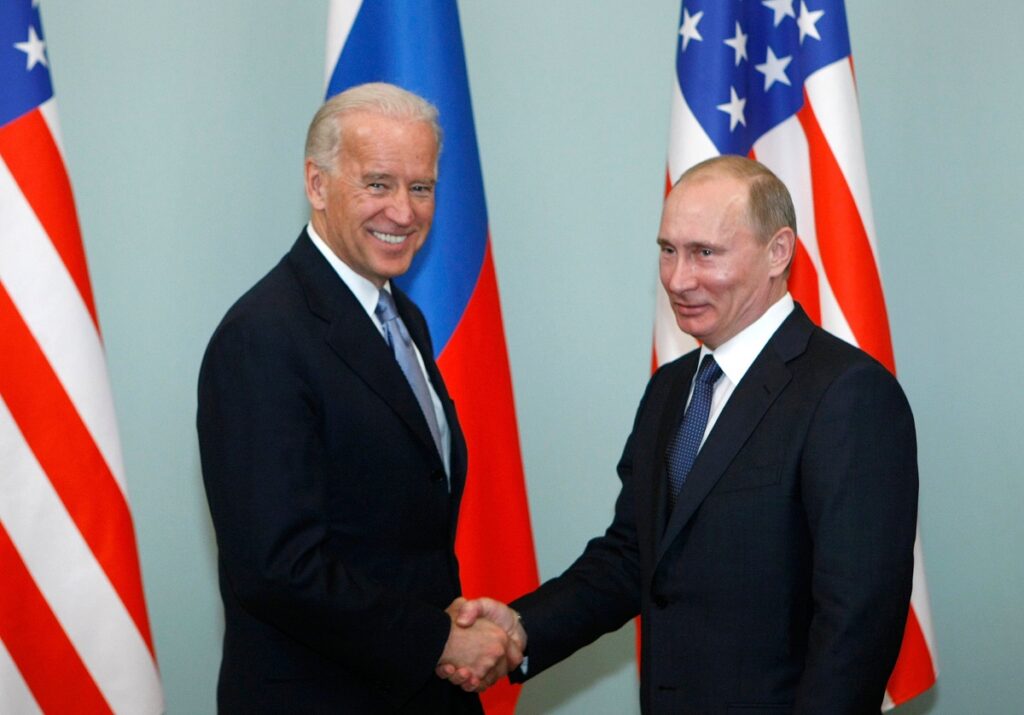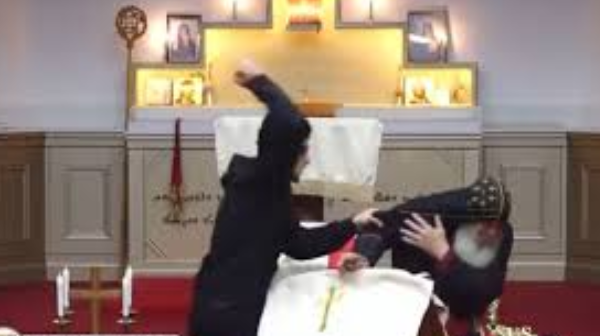As part of a flurry of diplomatic happenings in Europe this week, senior US and Russian officials began special talks on Monday aimed at defusing tensions regarding a Russian military build-up on the border with Ukraine.
Swiss police escorted Deputy Foreign Minister Sergei Ryabkov of Russia and his team to the US diplomatic mission in Geneva for direct meetings with Wendy Sherman, the US deputy secretary of state, and her team. These talks were a part of the Strategic Security Dialogue. At a conference in June 2021 in Bern, Switzerland, Presidents Joe Biden and Vladimir Putin started the Strategic Security Dialogue, which includes discussions on weapons limitation and other broad concerns. There were no immediate signs of a substantial breakthrough.

After a casual working dinner on Sunday, Ryabkov expected challenging talks in Geneva, which would be followed by a NATO-Russia conference in Brussels on Wednesday and a multilateral OSCE meeting in Vienna on Thursday.
To get concessions from the United States and its Western partners, Russia has pushed for assurances that NATO’s eastern expansion will no longer extend into former Soviet states like Ukraine, where Russia has amassed about 100,000 troops on its border. There are also growing concerns about military intervention in Ukraine.
State Department spokesperson Ned Price referred to Ukraine’s desire to join NATO as a reference to the United States’ faithfulness to the universal norms of sovereignty, territorial integrity, and independence of sovereign states to select their alliances at the dinner. Various analysts estimate that such a shift would be at least a few years away.
As Price put it, “Sherman expressed clearly that the United States welcomed meaningful and genuine progress through dialogue.”
This week, the United States has downplayed the chances of considerable progress and shown that some objectives, like an end to NATO expansion, are non-negotiable. As per Sherman, this goes against countries’ sovereign rights to set up their own security arrangements.
She even said that US officials have clarified that they are open to alternative options, including limiting future Russian deployments in Ukraine and limiting NATO and US military drills in Eastern Europe, if Moscow is prepared to ease off on its aggression in Ukraine.
According to US Secretary of State Antony Blinken, they expected no developments in the upcoming week. As per him, a better decision would be to defuse tensions in the immediate term and then resume negotiations at a later date. However, the United States must first see a de-escalation for any progress to be made.
On ABC’s This Week, Blinken said he could not see how negotiations could happen when Russia had a gun to Ukraine’s head, with 100,000 troops at its borders and the prospect of tripling forces in a matter of days.
Similarly, NATO Secretary-General Jens Stoltenberg tried to minimise expectations from the ongoing negotiations. It is impractical to expect these discussions to resolve all the country’s problems, “he told the reporters following talks with Ukraine’s deputy prime minister for European and Euro-Atlantic integration, Olga Stefanishyna. He said that what we are looking for is that we can agree on a procedure, a series of meetings, and a negotiated route ahead in the future.
Annalena Baerbock, Germany’s foreign minister, told reporters in Rome that communication was the best way out of the problem. She added that Russia’s continued violation of Ukraine’s sovereignty would have “catastrophic repercussions.”
However, NATO is concerned about Putin’s desire to use a pretext for an invasion, such as a breakdown in the discussions, as a justification for an invasion. Price stressed that there will be bilateral meetings in Geneva, but there will be no discussions on European security without the participation of European allies and partners. So, the government of Ukraine and other nations in Europe must be engaged in the negotiations.
Russian Foreign Minister Sergei Ryabkov said on Sunday that Russia approached the discussions with a clearer awareness of the United States’ position and observed signs from Washington that some of Russia’s suggestions could be addressed. According to Ryabkov, who spelt out Russia’s three objectives, NATO should no longer conduct military drills or intelligence activities outside its 1997 frontiers. So, as per Russia, no additional NATO expansion, no missiles on Russia’s borders, and for NATO no longer to have military exercises, intelligence operations, or infrastructure outside its 1997 limitations.
Works at The Truth International Magazine. My area of interest includes international relations, peace & conflict studies, qualitative & quantitative research in social sciences, and world politics. Reach@ aimen.bukhari@tti.org.pk










